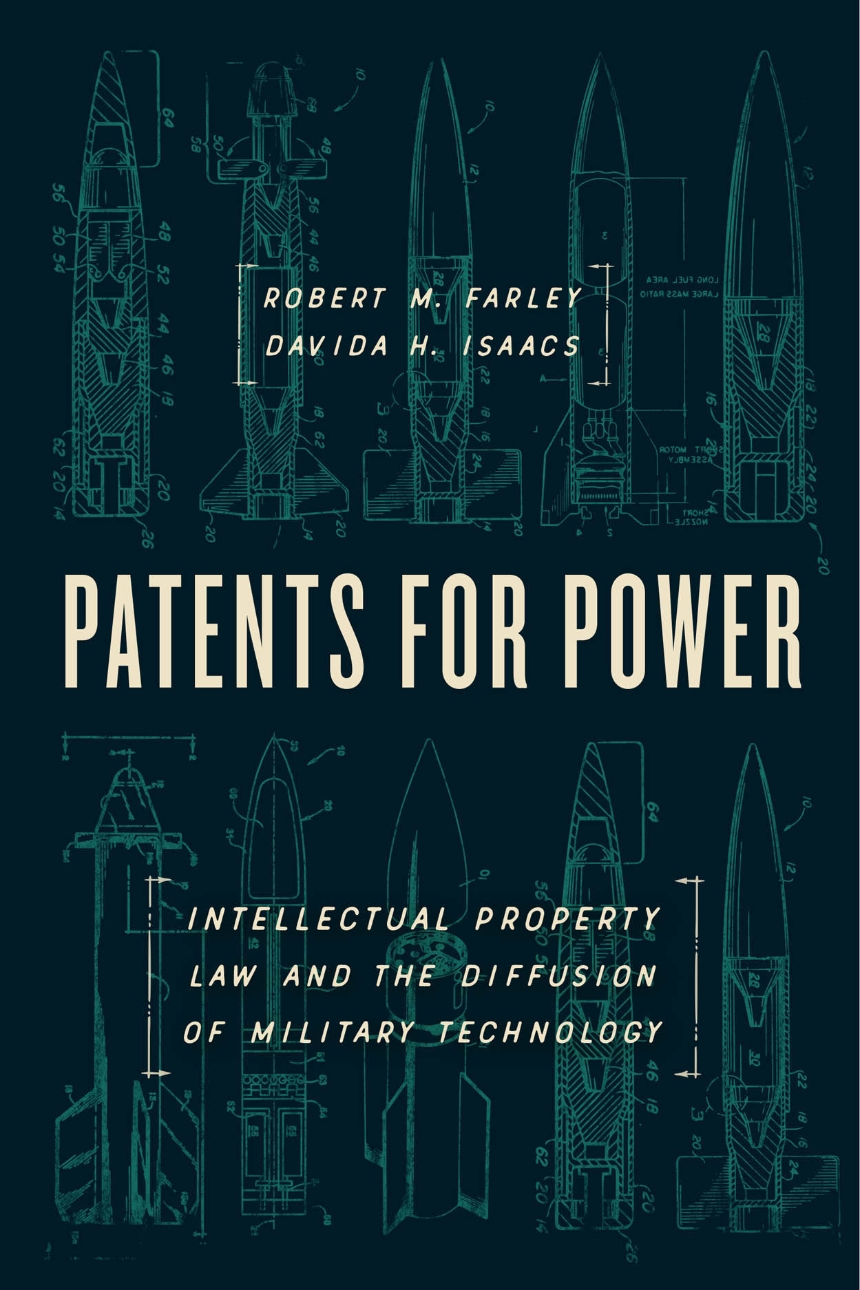Patents for Power
Intellectual Property Law and the Diffusion of Military Technology
9780226716527
9780226716664
Patents for Power
Intellectual Property Law and the Diffusion of Military Technology
In an era when knowledge can travel with astonishing speed, the need for analysis of intellectual property (IP) law—and its focus on patents, trade secrets, trademarks, and issues of copyright—has never been greater. But as Robert M. Farley and Davida H. Isaacs stress in Patents for Power, we have long overlooked critical ties between IP law and one area of worldwide concern: military technology. This deft blend of case studies, theoretical analyses, and policy advice reveals the fundamental role of IP law in shaping how states create and transmit defense equipment and weaponry.
The book probes two major issues: the effect of IP law on innovation itself and the effect of IP law on the international diffusion, or sharing, of technology. Discussing a range of inventions, from the AK-47 rifle to the B-29 Superfortress bomber to the MQ-1 Predator drone, the authors show how IP systems (or their lack) have impacted domestic and international relations across a number of countries, including the United States, Russia, China, and South Korea. The study finds, among other results, that while the open nature of the IP system may encourage industrial espionage like cyberwarfare, increased state uptake of IP law is helping to establish international standards for IP protection. This clear-eyed approach to law and national security is thus essential for anyone interested in history, political science, and legal studies.
The book probes two major issues: the effect of IP law on innovation itself and the effect of IP law on the international diffusion, or sharing, of technology. Discussing a range of inventions, from the AK-47 rifle to the B-29 Superfortress bomber to the MQ-1 Predator drone, the authors show how IP systems (or their lack) have impacted domestic and international relations across a number of countries, including the United States, Russia, China, and South Korea. The study finds, among other results, that while the open nature of the IP system may encourage industrial espionage like cyberwarfare, increased state uptake of IP law is helping to establish international standards for IP protection. This clear-eyed approach to law and national security is thus essential for anyone interested in history, political science, and legal studies.
224 pages | 5 line drawings, 3 tables | 6 x 9 | © 2020
Law and Legal Studies: General Legal Studies
Political Science: Diplomacy, Foreign Policy, and International Relations
Reviews
Table of Contents
1. Introduction
2. The International Relations of Intellectual Property Protection
3. Intellectual Property and the US Defense Industrial Base
4. Intellectual Property in Defense in Comparative Context
5. Intellectual Property and the Arms Trade
6. Intellectual Property, Industrial Espionage, and Cyber Security
7. Conclusion
Acknowledgments
Notes
Selected Bibliography
Index
2. The International Relations of Intellectual Property Protection
3. Intellectual Property and the US Defense Industrial Base
4. Intellectual Property in Defense in Comparative Context
5. Intellectual Property and the Arms Trade
6. Intellectual Property, Industrial Espionage, and Cyber Security
7. Conclusion
Acknowledgments
Notes
Selected Bibliography
Index
